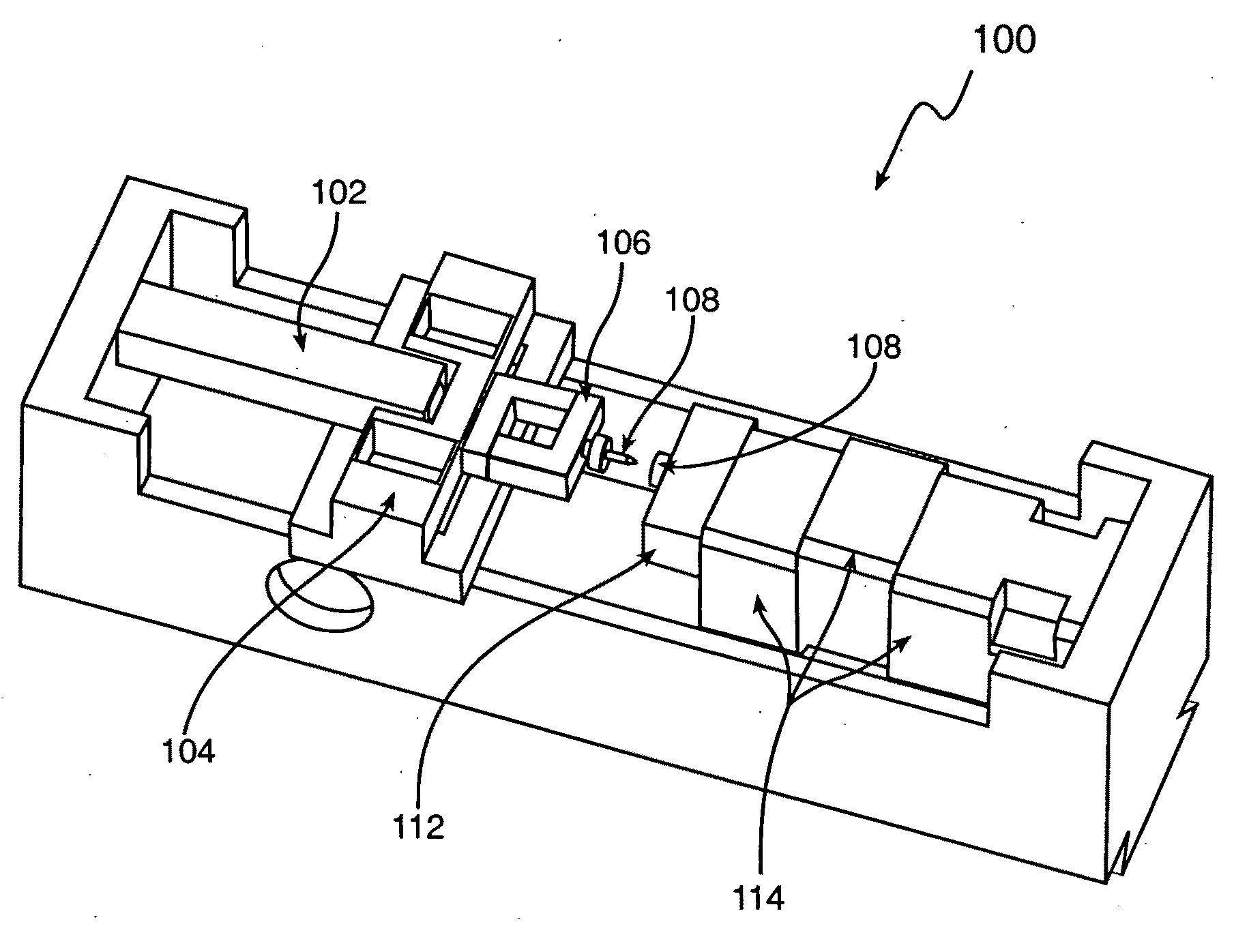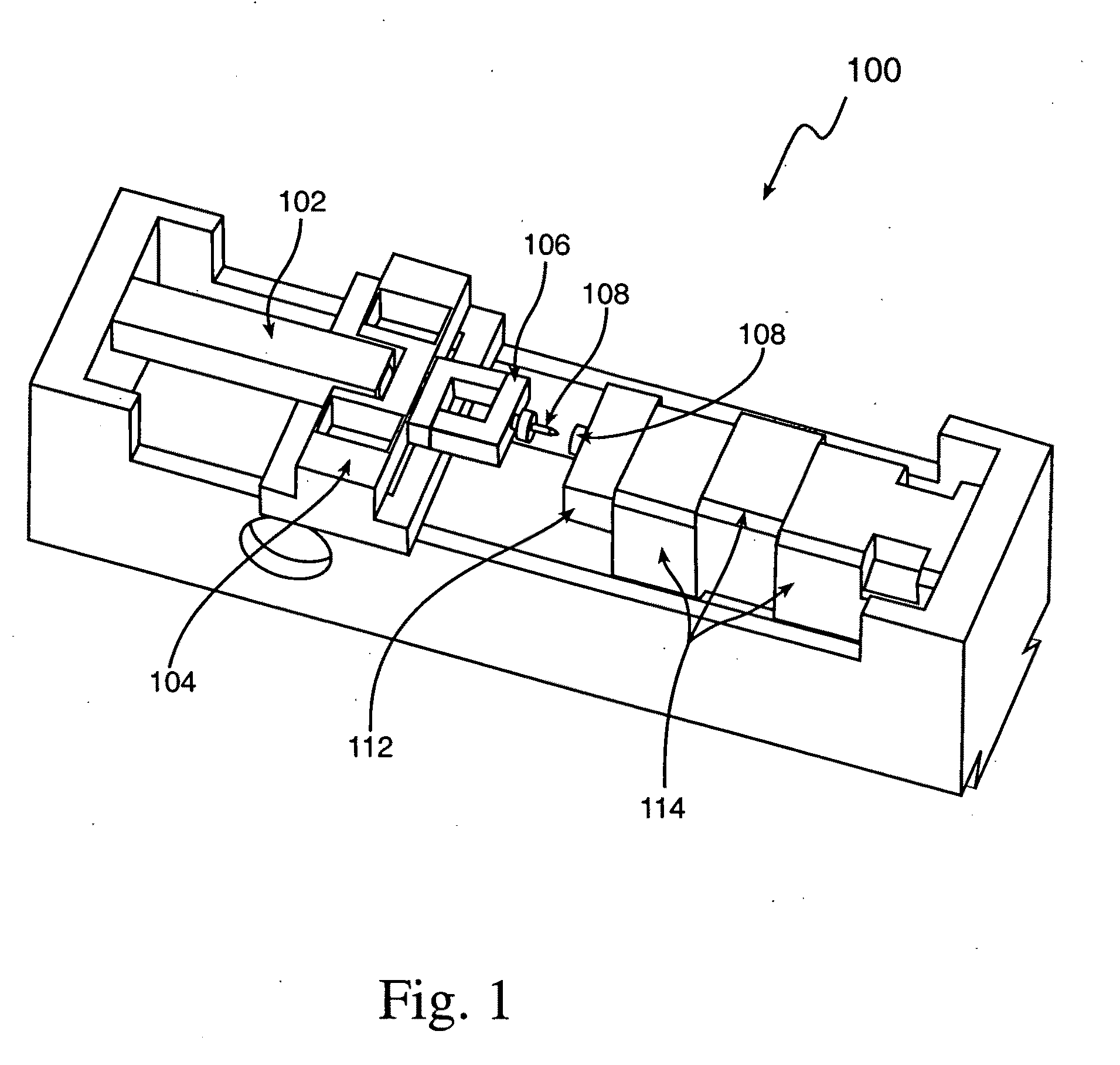Microtesting Rig with Variable Compliance Loading Fibers for Measuring Mechanical Properties of Small Specimens
- Summary
- Abstract
- Description
- Claims
- Application Information
AI Technical Summary
Benefits of technology
Problems solved by technology
Method used
Image
Examples
Embodiment Construction
[0024]The present invention utilizes a compliant fiber within an existing testing frame used to investigate deformation behavior of microsized specimens. Initially, compression tests were conducted using the test system equipped with a diamond platen (without a compliant fiber). Test results differed from ex-situ results conducted using a nanoindenter. It was contemplated that lateral stiffness in the system was the likely source of these differences. This problem was overcome by the use of a fiber to allow testing of appropriately fabricated samples in tension. A fixed grip was designed and cut into the free end of a fiber using the focused ion beam microscope. A compliant SiC fiber was chosen which would allow for minor self alignment of the grip during initial application of load to the microsamples and would accommodate lateral movements induced by deforming specimens. The SiC fiber was chosen for the grip application because of the high stiffness along its length and low stiffn...
PUM
 Login to View More
Login to View More Abstract
Description
Claims
Application Information
 Login to View More
Login to View More - R&D
- Intellectual Property
- Life Sciences
- Materials
- Tech Scout
- Unparalleled Data Quality
- Higher Quality Content
- 60% Fewer Hallucinations
Browse by: Latest US Patents, China's latest patents, Technical Efficacy Thesaurus, Application Domain, Technology Topic, Popular Technical Reports.
© 2025 PatSnap. All rights reserved.Legal|Privacy policy|Modern Slavery Act Transparency Statement|Sitemap|About US| Contact US: help@patsnap.com



